|
By Sara Forcella, See the Triumph Contributor
Since I have become invested in Intimate Partner Violence (IPV) research and advocacy, one of the main roadblocks that I have come to along the way is getting audiences to fully understand the scope of IPV. When you are not directly affected by IPV, it is easy to push its very existence to the back of your mind. Because we create these boxes for ourselves, and because we choose to separate ourselves from public health concerns such as IPV, we are only contributing to the stereotypes and judgments that go along with them. The simple truth is that as a member of this society, especially if you are a woman, IPV does and should matter! Think about your grandmother, mom, aunt, sister, daughter, and friends- at least one of them has likely been a victim of, or affected by IPV. Maybe you have even dealt with IPV and never even realized it. Intimate partner violence is much more common than we tend to think. It’s so easy for our society to attribute certain stigmas or preconceived notions to what IPV is, who abusers are and who it affects; but the truth is out there. The truth can be found in statistics,research and most importantly in the stories of survivors. These truths are all why IPV matters! 5 Truths to Know:
This last fact, that most incidents of domestic violence are never reported, is something that we can all help to change. We need to understand that IPV affects all of us in one way or another. For instance, think of four women who you know, and then consider that at least one of them most likely has been, or will be, a victim of domestic violence. Think of the people you know who range from the ages of 20 to 24. According to the NCADV, these are the people who are at the greatest risk of being in a relationship in which IPV is present. If IPV was not something that mattered to you in the past, then consider what you might do to help address this problem in the future. Even if you have never been directly affected by IPV, there are still many ways that you can get involved with your community and help those who are victims and survivors. Ultimately, intimate partner violence needs to start mattering. 1/30/2014 That Place Where You Just Know ThingsBy Christine Murray, See the Triumph Co-Founder
Recently, I had the honor of attending a Celebration of Life for Lindy Beauregard, who was a local (in Greensboro, North Carolina) champion for children who have been exposed to trauma, and especially domestic violence. Lindy’s life was very inspiring, and I wanted to share a bit of her story with you. Lindy had a successful career on Wall Street before dedicating her life to serving others. She left that successful business career to work as an advocate for those who experienced struggles in life. Her most notable role was at the founding advocate for the Greensboro Child Response Initiative, which is an awesome resource in our community to help kids who have witnessed crime and other trauma get connected to the resources and services they need. When Lindy was diagnosed with cancer, she faced it with such grace, dignity, and positivity that it was a complete inspiration to me, as well as so many other people she knew. Even during her struggle with cancer, she always asked about other people and wanted to see good things happening in our community for children and families who have experienced violence and trauma. As a lasting tribute to Lindy’s legacy, a program called Lindy’s Kids has been established to help make sure that these children and families have access to the resources they need. I learned something new about Lindy at the celebration of her life that stood out to me, because it seemed so relevant to many of the survivors’ stories we heard in our research. In her moving remarks about Lindy, my friend, Kelly Graves, who is the Executive Director of the North Carolina A & T State University’s Center for Behavioral Health and Wellness, talked about how Lindy used to talk about “that place where you just know things.” I loved that idea of “that place where you just know things,” because in my own life, I know that there have been times when I’ve been in that place, and of course there have been other times that I’ve been out of step with that place. As I reflected more on the idea of “that place,” I thought more about how important that place is for survivors of intimate partner violence, especially about those we’ve heard from through our See the Triumph campaign and in our research. So often, we’ve heard about how survivors got disconnected from that place, both during and after the abuse they experienced. But some of the things that many survivors have told us they came to “just know” include the following:
It was an honor to know Lindy and to be inspired by her passion, integrity, and commitment to serving others. I hope that this message about Lindy’s idea about “that place where you just know things” can continue to inspire others to trust their intuition and follow their hearts. By Rachel Miller , See the Triumph Contributor
It’s hard to explain what leaving an abusive relationship feels like to someone who has never experienced it. We, as survivors, can struggle with telling our stories or explaining our present situations because we know, that even those with the best of intentions, often just can’t “get it.” The best analogy I’ve been to come up with is this: Once you’ve left your abusive situation, it can very much feel like you’ve jumped off a cliff… blindfolded. It feels like you were being chased by a bear with your options being to, either jump off the cliff and hope to survive the fall, or stay and be eaten. So you jump and for a moment you feel this rush, you’re free! You’re safe! But wait... you took the leap, only to suddenly realize you have no idea where the bottom of the ravine is or what the landing will be like when you hit and because of the blindfold you can’t get your bearings or prepare yourself on the way down and you begin to wonder if jumping really was the right decision after all. Preparedness does not prevent pain, this, my very wise therapist told me once, and I have learned this, personally, over the last few years, but I think sometimes it can provide an opportunity to brace oneself. Being prepared may keep the pain from knocking you to your knees or perhaps knowing that something is possible can provide you with the strength to get back up, if it does. From one survivor to another to another, there are five things I wish I had known when I left my 15 year abusive marriage. 1. Leaving is only the first step in recovering from an abusive relationship. I’ve discussed this in a previous blog, but it is worth stating again. With so much focus being put on the aspect of getting victims out of abusive relationships, teaching survivors how to recover from their traumatic experience is usually an afterthought, if it is a thought at all. As someone who did not seek refuge in a shelter and only met with a counselor once to create a safety plan before leaving, I really believed that all I needed to do was get out and everything would be fine. I would be all right; my kids would be fine; I just needed to get out. I wasn’t prepared to deal with the fact that the abuse does not stop once you leave it simply changes tactics. I had no idea how the distorted thought processes I’d developed in the relationship would affect the rest of my life. I didn’t even know I had them. I had no idea how damaged and bruised I was. 2. You may develop PTSD. I had to have a full blown panic attack, after a particularly ugly verbal assault by my ex, in order to realize that I was not nearly as okay as I believed I was. This incident happened over a year after I had left. I had moved on with my life, was in a new, amazing relationship; I knew things weren’t always easy for me or the kids, but I thought we were, for the most part, better. It wasn’t until I was tweeting one day about the panic attack and someone replied back with “the PTSD symptoms will fade, with time” that I realized developing PTSD was even possible in my situation. I thought PTSD was something soldiers, people who had survived a bomb or a shooting developed, not someone who had survived domestic violence. The idea that I could have this rocked me to my core. I had truly believed I was okay. This realization is what finally sent me to therapy. PTSD was not something I was capable of dealing with on my own, this much I knew. My therapist confirmed the suspected PTSD diagnosis and helped me understand that domestic violence in not something you just “get over,” it is something you recover from. While the idea of having PTSD was scary, I’m grateful for its appearance, as it was what brought me to the place I needed to be. It was where my healing and recovery journey began. 3. Friends and family that you expect, or need, support from may not be capable of providing it. It was interesting to see the responses of those around me to my story, as I began to become comfortable telling it. There was horror, disbelief, sadness, pity and lots of questions. Why didn’t I tell? Why didn’t I leave sooner? And then there were others who wanted to know why on earth I would lie about something so serious, they simply could not believe that my ex was capable of such behavior, or why I didn’t try harder to make my relationship work, making it my fault for giving up. You can never predict other people’s responses to your situation. What I have learned is that their responses typically have nothing to do with me, or my story. Their responses are almost always about them, their own histories, their own beliefs, their own biases. It’s taken a couple of years of years of recovery to get to the place where I can accept people where they are, instead of where I’d like them to be and to be able to not take their responses personally. What I have found is that people you thought would be your biggest supporters actually have too many of their own issues to be able to be what you need. This does not make them bad people, but is who and where they are in their own journey that may prevent them from even being capable of supporting you. When you begin to work on yourself, you become a mirror to those around you for they work that they aren’t doing on themselves. This is not a picture many like to or are even willing to see. It can lead to hostility and even the ending of relationships. It is okay to distance yourself from those who aren’t in a healthy place, from those who can’t support you in a way you need and from those who drain you, rather than lift you up. You are allowed and encouraged to put your own wellness and healing about the needs of others, even if they don’t understand it. 4. Some will not want to hear or believe your story. Domestic Violence is not a sexy subject. It is not something people like to sit around and chat about. It makes people uncomfortable. Even those who are relieved you’re out of your situation may not want to hear you tell your story. Then there are those who think you’re making it up, or the ones who don’t want to “take sides” or think there are two sides to every story. Here is the truth, you get to tell your story as many times and in any way you choose. It is your story, no one else’s and there is no shame in telling it. If telling your story validates your experience and empowers you, go ahead and tell it. If others feel uncomfortable, that is on them. If people choose not to believe you, that too is on them, not you. You know what happened to you and it is always acceptable to use your voice, now that you’ve found it. On the flipside of this it also acceptable to not tell your story, you have to decide what is best for you and your recovery. 5. There is potential for re-victimization from lawyers, therapists and the court system that do not understand domestic violence. Many survivors have to seek assistance from professionals at some point. We reach out to lawyers for legal assistance and therapists for ourselves and possibly our children, for mental health assistance, as we should. Just do so with the understanding that many, if not most, of these individuals have almost no specialized training or experience in dealing with situations containing domestic violence. You will be told they do, both by them and by others, sometimes even by the court system. The reality is this there is very little training available and almost none of it mandatory for lawyers or those working within the family court systems. In addition, other than a semester long class in their Master’s program, therapists do not have training either, unless they sought it out on their own. This leaves those of us trying to get out of an abusive situation at the mercy of people who have little to no idea what we’ve been through or how to help us. They don’t understand the cycle; they don’t understand that abusers use the courts, attorneys, therapists and custody arrangements to abuse us further, thus allowing us to continually be re-victimized by both the abuser we are trying to leave and those who are supposed to be helping us. I learned this the hard way. My children will not step foot into another therapists office after their experience with one who claimed to be able to handle our situation, but couldn’t. My attorney failed me multiple times because he did not understand that my ex was using his attorney and the courts to intimidate, control and abuse me further, even though I told him that was what was going on. This by no means implies that there are not some very good, reputable and trained individuals out there who can help you, there are. You just have to do your research, ask the right questions, and use domestic violence advocates, if need be and where you can. I am not saying asking these questions is always easy but there will be a point in your situation where you will be glad you did. If you’re uncomfortable doing this for yourself, it’s a great time to rely on your support system. Ask someone to accompany you to your first meetings and don’t commit until you feel like you have found a good fit for you and your situation. This is the time to shop around instead of taking the first one you’re presented with. While there are lots of other things I’d wish I had known, these are the five that, in hindsight, I feel would have helped me the most, allowed me to be more prepared. Knowing these things would not have prevented the pain that accompanied these realizations, but I can hope that if you are even a little better prepared than I was, maybe they won’t knock you as flat as they did me, or that if you can share this insight with your support system, they will be better prepared to help you. One of the most challenging things about abusive relationships and domestic violence is that every situation is different, what every individual is dealing with is different, but these five things come into play for most of us at some point, regardless of our differing circumstances. Maybe knowing them will make your journey just a little bit easier. 1/27/2014 Really, It's Not Your Fault!By Christine Murray, See the Triumph Co-Founder
A couple months ago, we ran a pledge on our Causes site that gave people a chance to pledge to tell survivors, “It’s Not Your Fault!” The response was overwhelming. Over 1,600 people took the pledge as a sign of their support for survivors, and we think this number of pledges sends a powerful message to survivors that truly, the abuse they experienced is not their fault. To every survivor out there: We want you to remember this message: "It's not your fault!" Every time you are told or start to feel that you are to blame for the abuse you experienced, try to imagine a room (Or auditorium? Or city block?) full of over 1,600 people. Imagine that all of these people know deep in their hearts that the only one responsible for the abuse you experienced was the person who chose to abuse you. We know that the blaming of victims comes from many internal and external sources. If someone tells you it is your fault, it can be easy to believe them. However, nobody deserves to be abused. We send a big thanks to everyone who took this pledge! If you took it and want to do more to support survivors, please consider taking our new pledge to do at least one thing each month in 2014 to challenge the stigma surrounding intimate partner violence. Throughout the year, we’ll continue to provide you with the resources and inspiration to stick with this pledge. As always, thanks for all you are doing! We are honored to be partnering with you in the See the Triumph community! By Christine Murray, See the Triumph Co-Founder
Recently, we launched See the Triumph Collections, which is one of our main initiatives during 2014. Our goal with these collections is to make it easier for you to find the resources created by the See the Triumph team. In particular, this coming year, we plan to focus on some specific areas that we found in our research were especially relevant to the stigma surrounding intimate partner violence. Ultimately, we want to develop and share resources that will help members of our See the Triumph community to take action within their own communities to uproot the stigma surrounding intimate partner violence. We believe that ending this stigma will make it easier for survivors to get the help they need and will also aid in efforts to prevent and intervene in order to stop further abuse. We urge each one of you to consider the various communities in which you live, and it’s likely that most of you interact with a variety of communities throughout your daily lives. These communities may include your neighborhoods, workplaces or schools, religious or community organizations, cultural groups, and even online social networks. We believe that every community needs strong voices for ending intimate partner violence and ensuring that survivors within those communities are supported and able to access helpful resources. Based on our research and our work thus far with the See the Triumph campaign, I propose that every person can make efforts to challenge the stigma surrounding intimate partner violence within their own communities. Please read on for five steps you can take today to begin or continue with these efforts: 1. Acknowledge the problem. The stigma surrounding intimate partner violence thrives on the denial and minimization of the full extent of the problem of intimate partner violence. It is much more difficult to recognize abusive behaviors and relationships when people believe that abuse doesn’t exist, or at least doesn’t exist in their own communities. Therefore, a first and important step is to acknowledge that intimate partner violence remains a major problem in virtually every corner of our society. One great resource to get started in learning about the scope of intimate partner and sexual violence can be found in the Centers for Disease Control and Prevention’s National Intimate Partner and Sexual Violence Survey. 2. Educate yourself. You do not need to be an expert in order to become a voice in your community for raising awareness about intimate partner violence and the needs of survivors. However, it is valuable to become educated about the unique dynamics surrounding abuse, and especially about the safety issues involved. There's a lot of information about intimate partner violence available on the Internet, although it’s important to ensure that you receive your information from a credible source. One great resource was developed by the National Resource Center on Domestic Violence, and anyone can access their online training on the basics of domestic violence. You can also seek out other learning opportunities in your local community, such as through your local domestic violence agency or college courses available in your area. 3. Initiate conversations. Intimate partner violence is not always an easy topic to discuss with others. However, these conversations are a great way to raise awareness within your communities. Some of the ways you might initiate these conversations include the following:
Unless you are a trained professional who works in an agency that responds to intimate partner violence, it’s likely that you’ll need help from others when you learn of someone who has experienced intimate partner violence. Therefore, it is important for you to learn about credible resources in your area so that you’ll be ready when such a need arises. The National Coalition Against Domestic Violence offers a list of State-level domestic violence coalitions, which is a great place to start in learning about resources in your area. I suggest you that you reach out to individuals who work in your local community to ask about other potentially helpful resources, such as for basic needs (e.g., food, shelter, and clothing) and educational and career support. 5. Uproot the causes of stigma. In many ways, this last step of challenging the root causes of stigma is the most difficult. What we’ve seen in our research is that the stigma surrounding intimate partner violence is deeply entrenched into society, as well as into the psyches of many people. We are working on more research to learn more about these causes, but based on the work we’ve done thus far, I would suggest that some of these causes can be found in gender discrimination, socioeconomic disparities, family traditions, and inequities in access to resources within communities. To be certain, there are no simple solutions for uprooting these causes. However, each person can take big and small efforts in their own lives and within their communities to work toward broader-level peace, safety, and equality for everyone. We hope that the collections we will unveil during 2014 will become a useful starting point for taking any of the above actions in your own communities. As always, we welcome your suggestions for new resources you'd like us to create, as well as your thoughts on any of the ideas we discuss on our blog. On behalf of the survivors who participated in our research, we thank you for any actions you take toward challenging the stigma surrounding intimate partner violence. One person can make a difference--don’t ever doubt that! 1/21/2014 It's Not Supposed to be This Hard It’s Not Supposed to be This Hard
By Rachel Miller, See the Triumph Contributor Most of us grow up being told that anything worth having requires hard work and is worth fighting for. This way of thinking is seriously problematic when you are in an abusive relationship. We are groomed to believe that we do not deserve, nor should we want, what comes easy. Parents, teachers, coaches and other adults tend to tell children that if something is easy to obtain, it isn’t worth having. While this may seem like good motivation for a child, in reality it can create a paradigm in our brains that is hard to shift out of and can prove extremely detrimental in our adult lives. When this is what we are taught, abusive relationships feel like they must be the most valuable commodities on the planet. We put in so much work, so much effort and we are convinced that someday, all of that hard work and energy will pay off, big time. It has to, right? Anything worth having is worth fighting for. If it was easy, it wouldn’t be worth it, right? Wrong! Love is not supposed to be this hard, people! Can relationships be challenging? Yes, of course, but when you are losing yourself within a relationship, draining yourself to save the relationship, what are you really gaining? A healthy, genuine, loving relationship should make you a better version of yourself, not a shell of who you once were. It should empower you to grow, reach for your dreams and achieve your goals. It should be the safe space you go to when you need to recharge. When a relationship puts you in place where you are continually giving more than you are receiving, the amount of energy it requires to maintain forces you to let go of activities and people who lift you up, then it is time to understand that life, and love, are just not supposed to be that difficult. There is a simple phrase that was given to me by a mentor and friend a few years back that helped me shift this thought paradigm of “anything worth having had to be hard.” I repeated it to myself every day, multiple times a day, especially when I caught myself going to that place of believing that life was supposed to be difficult, that my own value was based solely on how hard I was willing to work, or how much of myself I was willing to sacrifice. “It is okay for me to experience ease and joy in my life.” This single sentence helped me change my life. Repeat it to yourself, often. Write it somewhere that you will see it all the time. Not everything in life needs to be hard. You do not have to struggle in order to consider yourself worthwhile. You are worthy of the life, love and relationships you desire, just the way you are, exactly where you are, at this very moment in time. Are you like I was? Do you believe deep down that love, marriage and all relationships are supposed to be hard? That relationships require a commitment that you must follow through on? Do you feel like you made this bed, so now you must lie in it? Let me challenge you then to stop and re-think those thought patterns. You are worthy of a love that is genuine, safe and yes, easy. It is okay for you to experience ease and joy in your life. Once you are able to accept that simple statement as fact, you will no longer settle for constant struggle. You will begin to steer clear of relationships that drain you, make you feel less than or that require you give up pieces of yourself. You will find yourself being open to new, easy experiences that make you feel appreciated, worthy and empowered. Retraining yourself to think this way takes some practice and you may find yourself falling back into old patterns of thinking, but the more you stay focused on real truths instead of old paradigms and beliefs, the more it becomes a natural way of thinking. I am not a big proponent of the “fake till you make it” methodology, but in this case your inner voice matters. Your inner dialogue has a huge impact on your thought processes and resulting behaviors. Unfortunately most of us engage in negative self-talk and carry around beliefs that are simply untrue. Much of it just below our consciousness and way too many of the things we say to ourselves and believe about ourselves are what others have convinced us to be truths, not our own truths. If you are determined to invest time, energy and effort into a relationship, make it your relationship with yourself. Become committed to shifting old paradigms and thought processes that no longer serve you. Spend your time and energy learning new ideas and thought patterns that can benefit you and lead you towards the life you are worthy of. You do not have to struggle to be worthy of what you desire. It is okay to experience ease and joy in your life. |
Archives
July 2024
CategoriesAll About Intimate Partner Violence About Intimate Partner Violence Advocacy Ambassadors Children Churches College Campuses Cultural Issues Domestic Violence Awareness Month Financial Recovery How To Help A Friend Human Rights Human-rights Immigrants International Media Overcoming Past Abuse Overcoming-past-abuse Parenting Prevention Resources For Survivors Safe Relationships Following Abuse Schools Selfcare Self-care Sexual Assault Sexuality Social Justice Social-justice Stigma Supporting Survivors Survivor Quotes Survivor-quotes Survivor Stories Teen Dating Violence Trafficking Transformative-approaches |
Search by typing & pressing enter


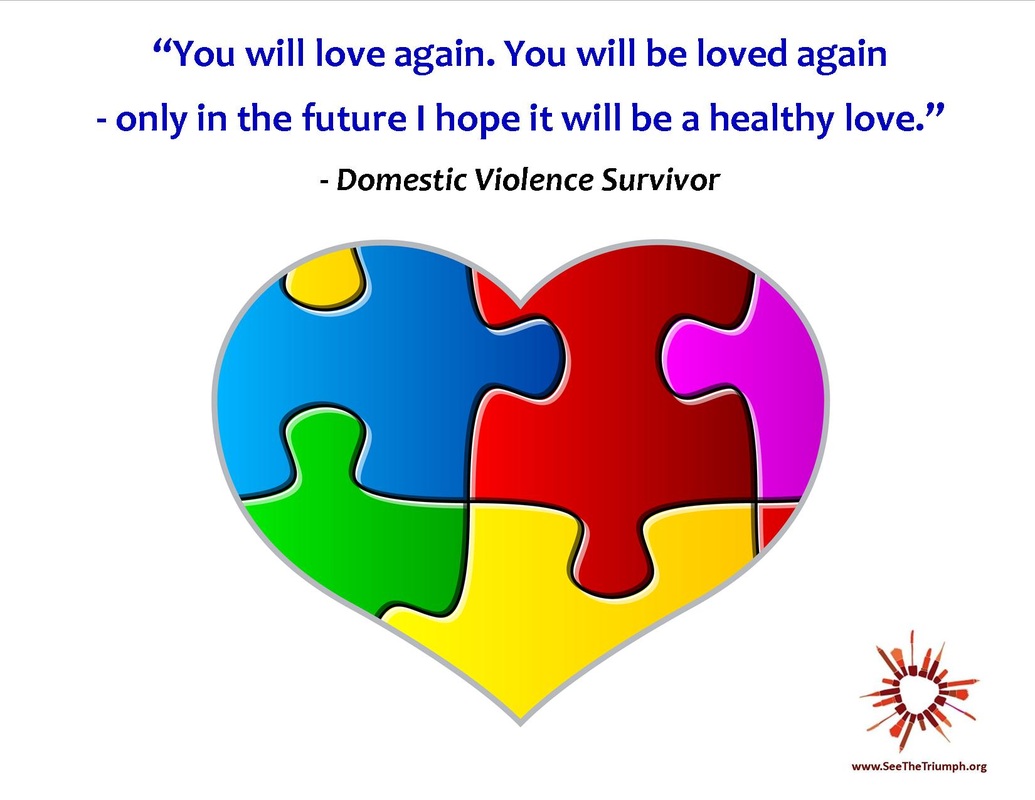
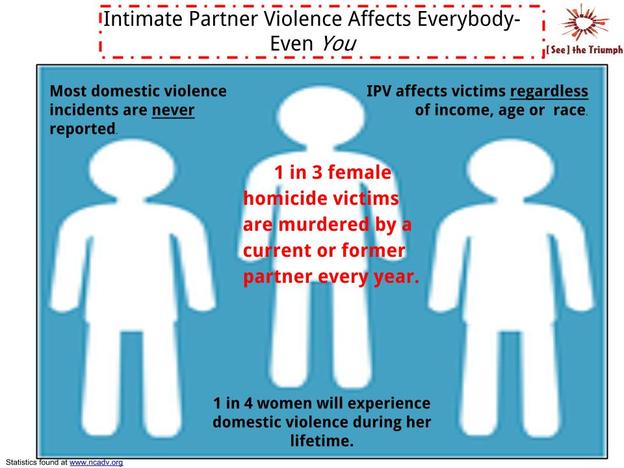
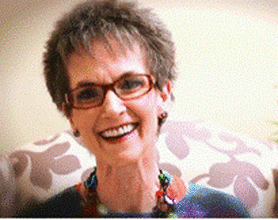
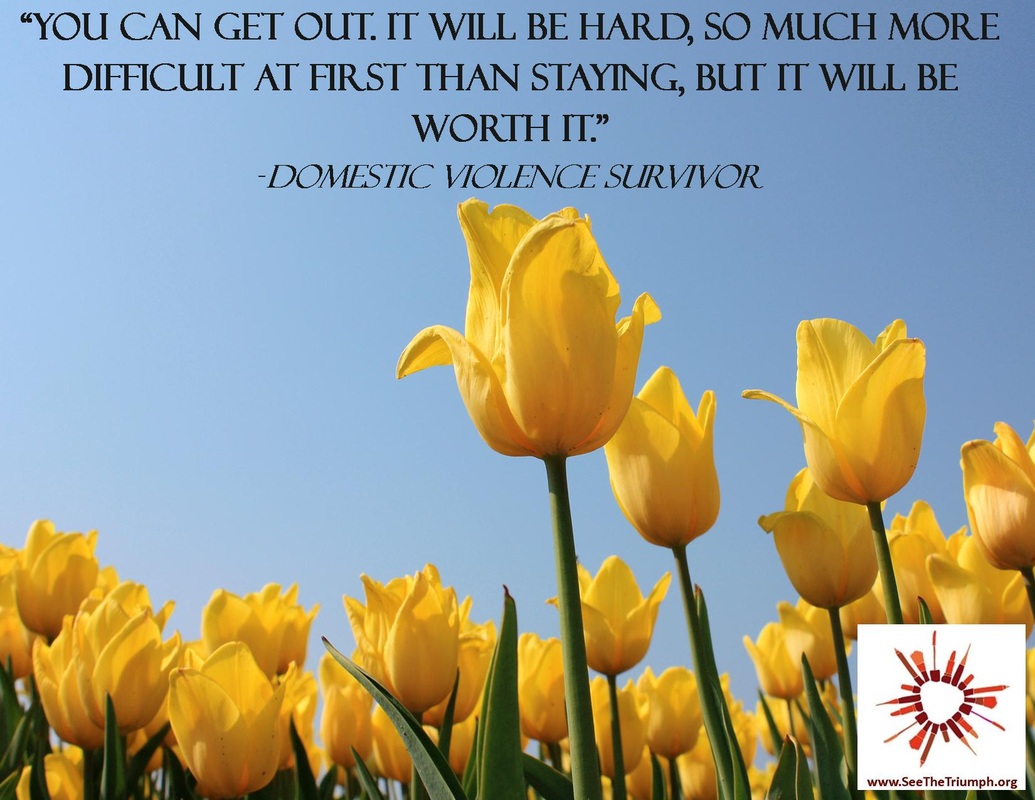
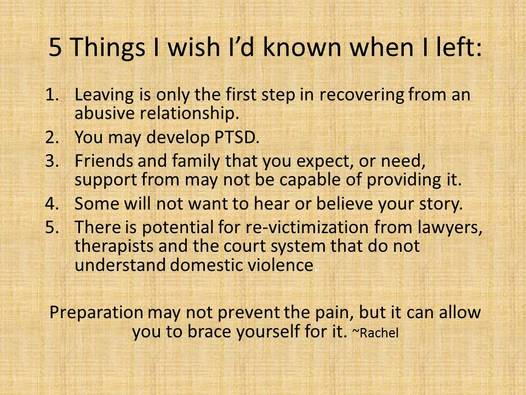
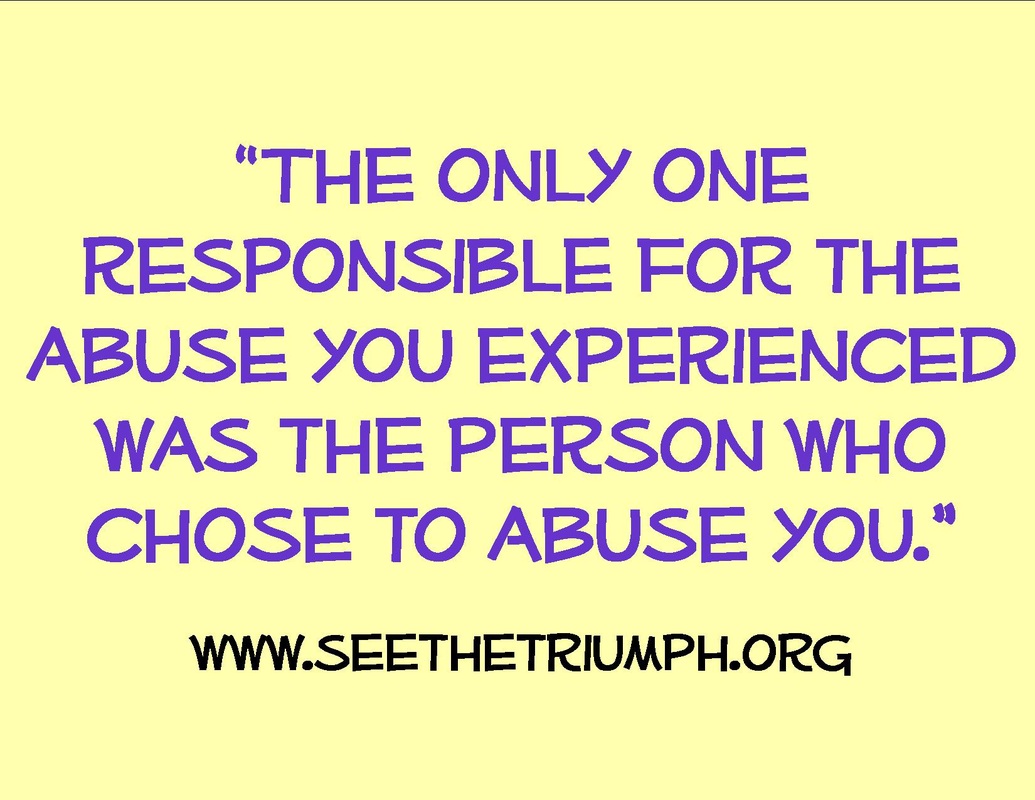
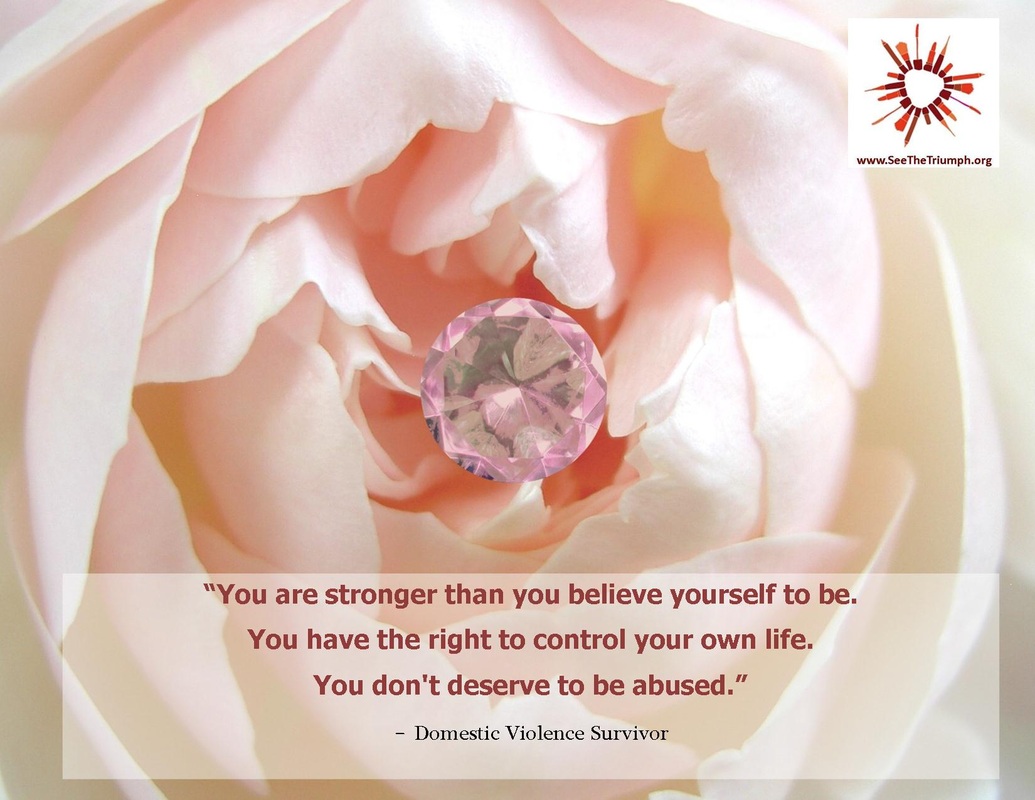
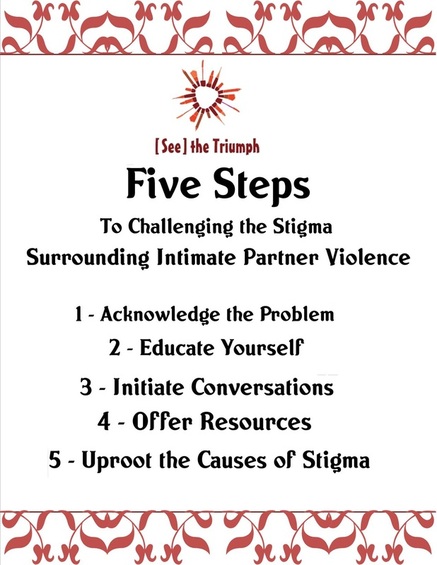
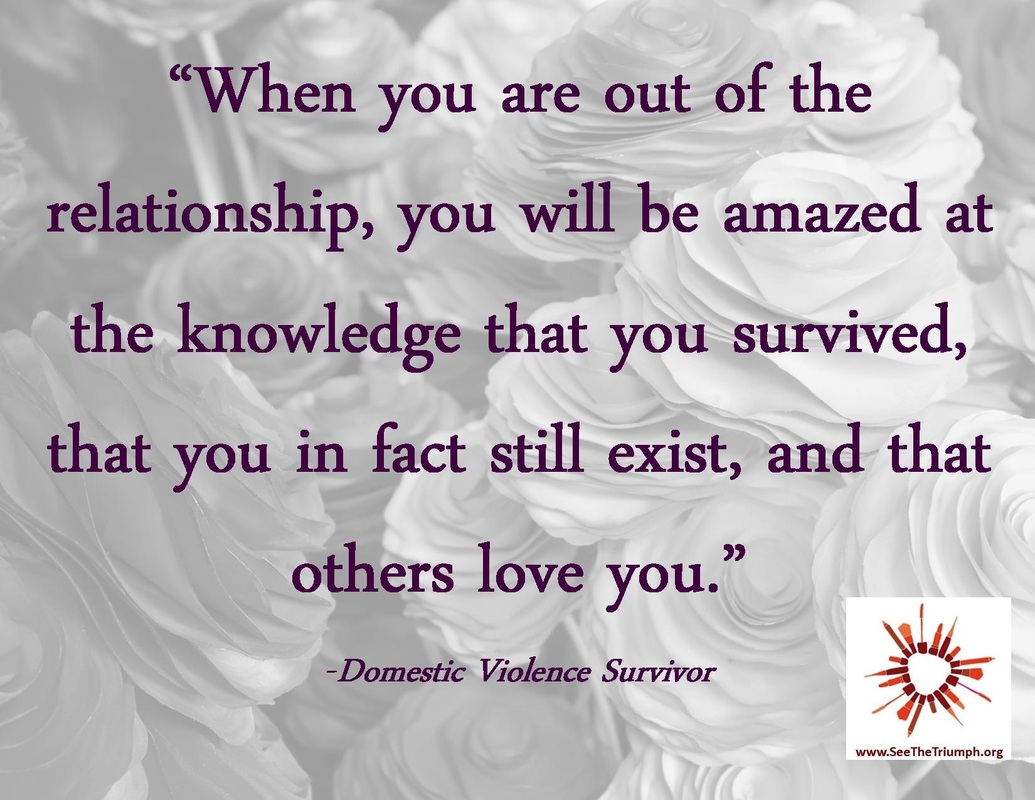
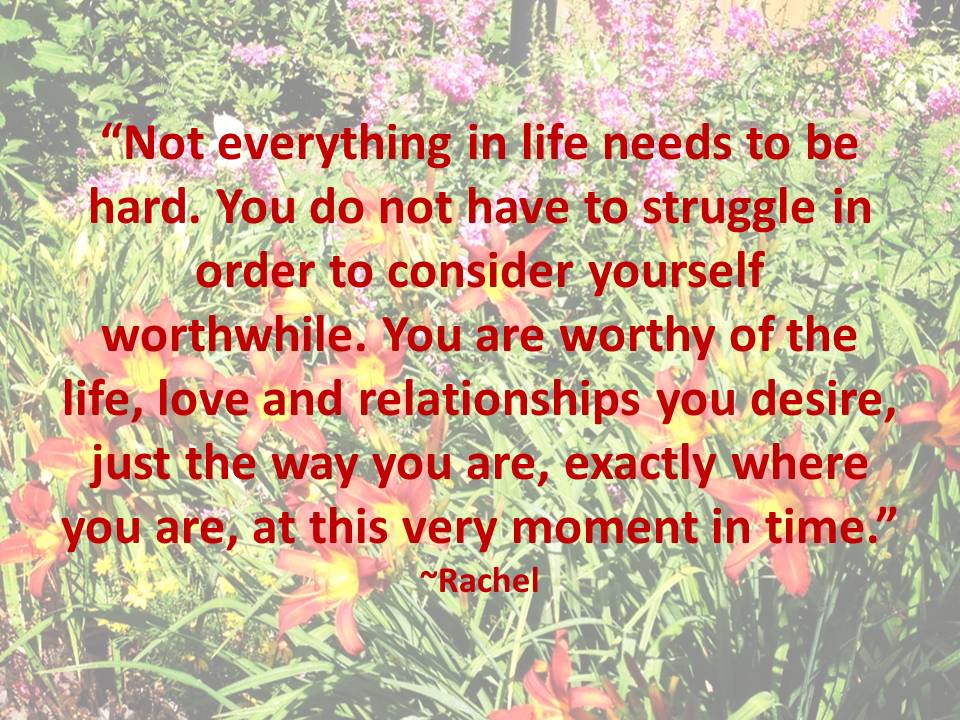
 RSS Feed
RSS Feed